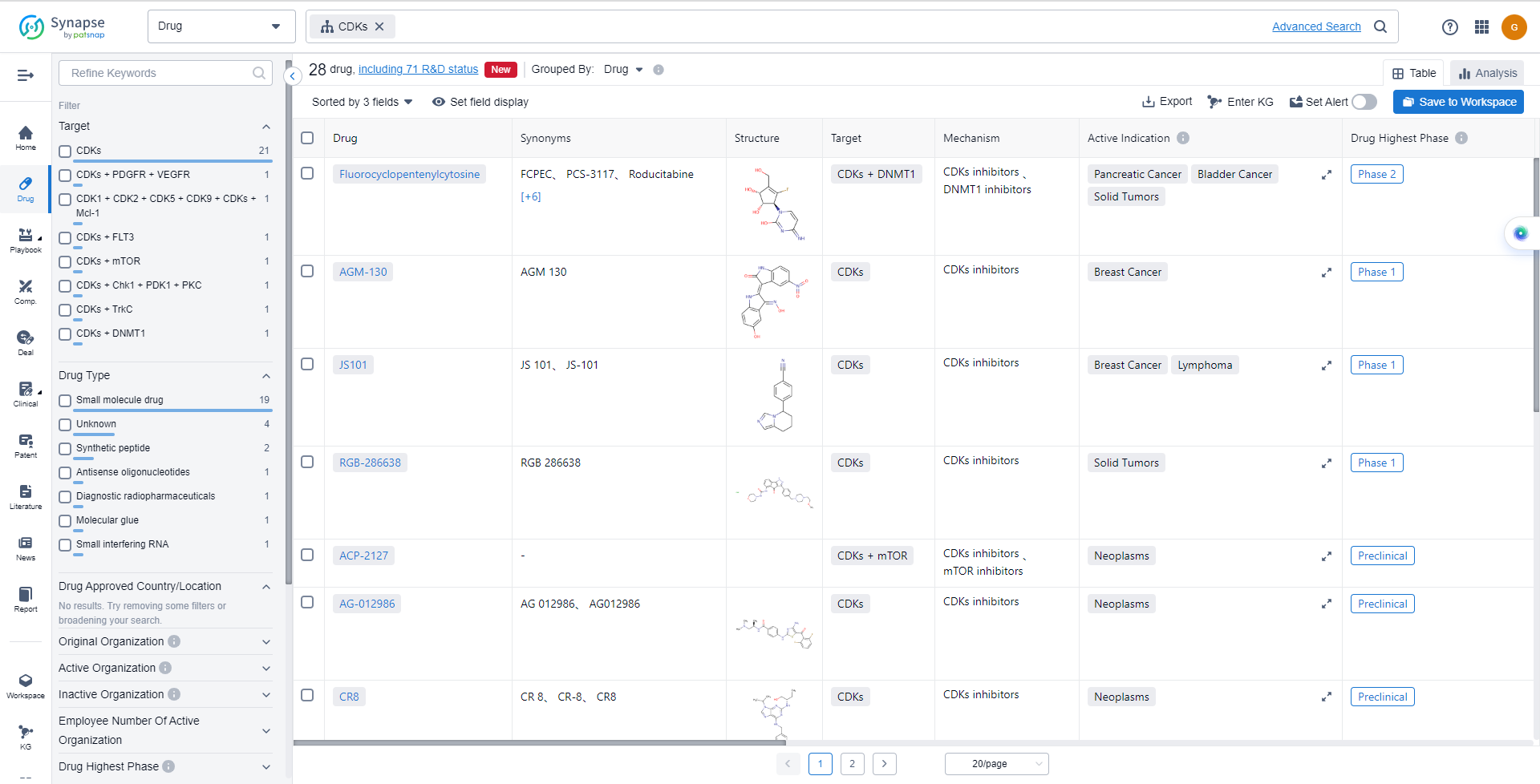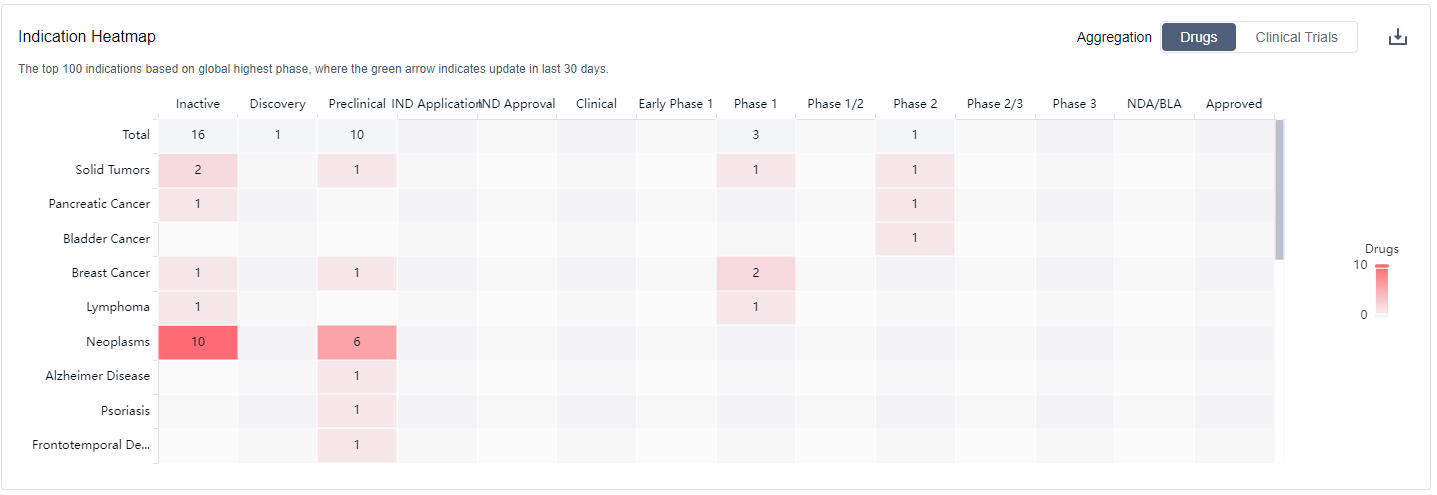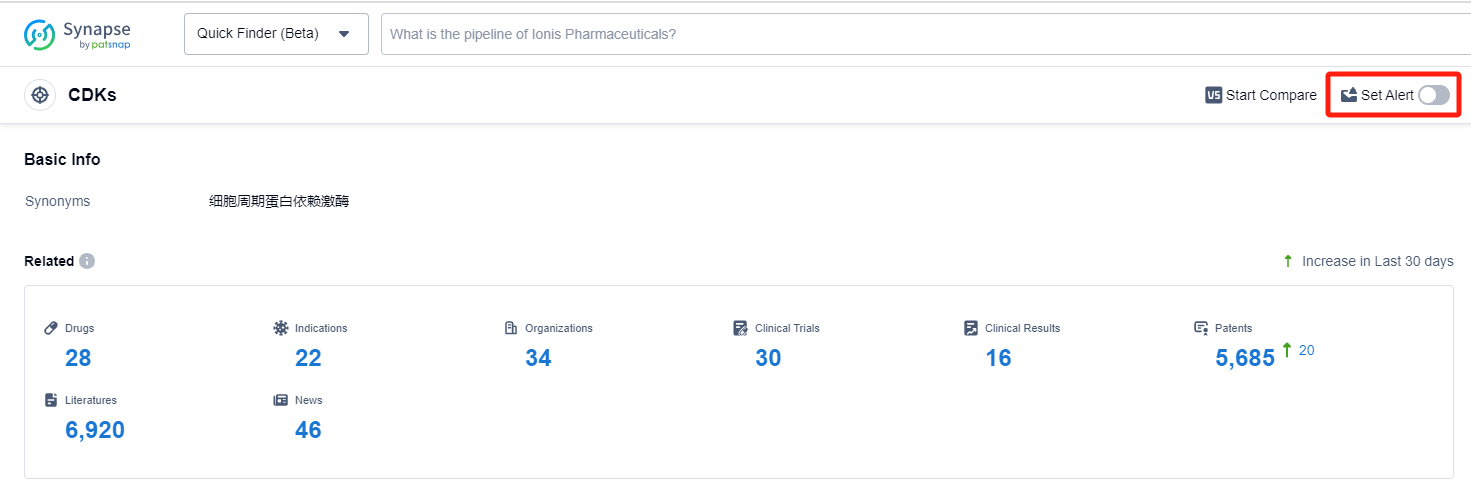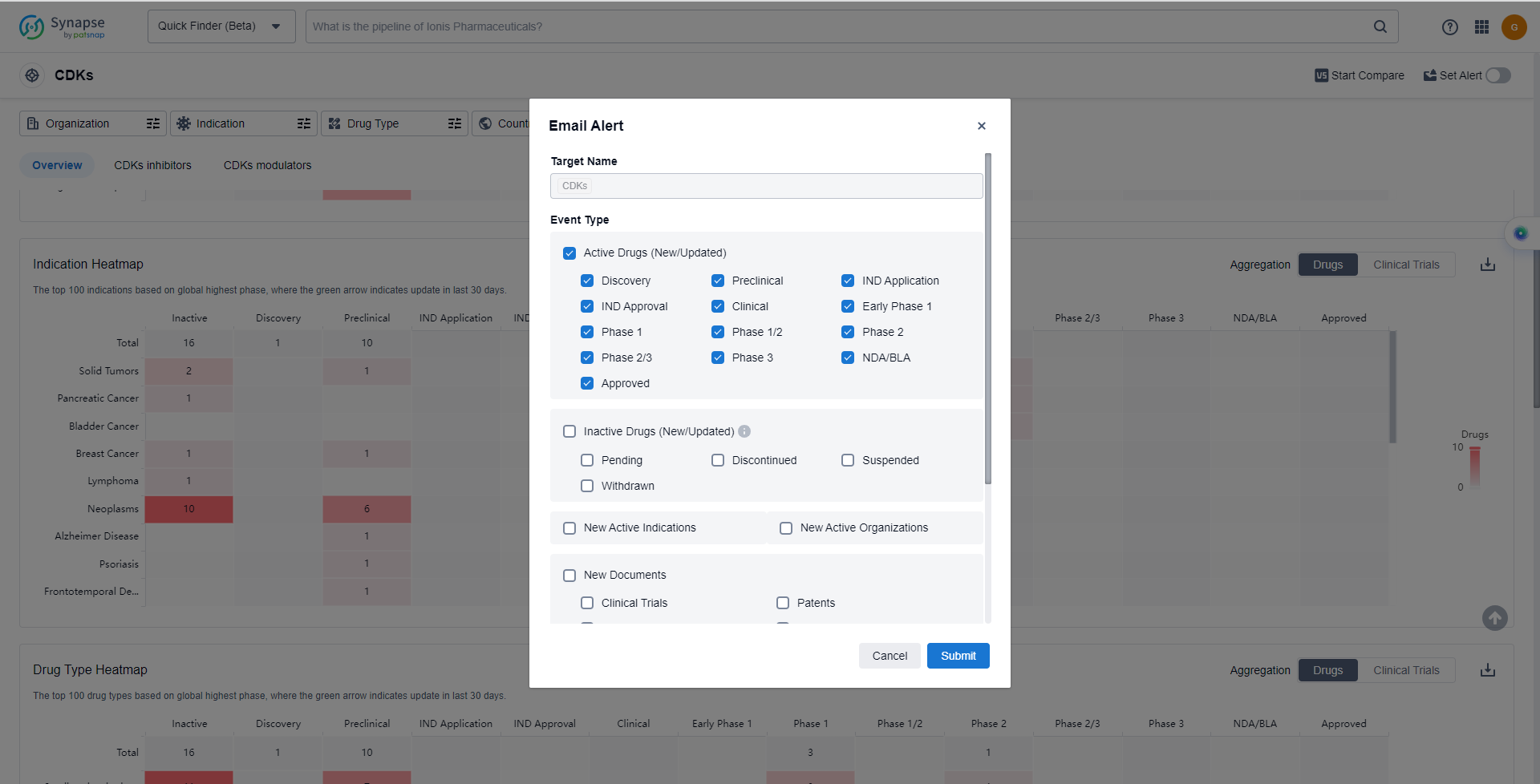What are CDKs inhibitors and how do you quickly get the latest development progress?
CDKs, or cyclin-dependent kinases, are a group of enzymes that play a crucial role in regulating the cell cycle in the human body. They work in conjunction with cyclins, which are proteins that activate CDKs at specific stages of the cell cycle. CDKs control the progression of the cell cycle by phosphorylating target proteins, thereby initiating various cellular processes such as DNA replication, cell division, and cell differentiation. Dysregulation of CDK activity has been implicated in numerous diseases, including cancer, making them attractive targets for drug development. Inhibitors of CDKs have shown promise in clinical trials as potential therapeutic agents for cancer treatment.
In recent years, research in the field of CDK inhibitors has primarily focused on furthering the selectivity of these inhibitors. In addition to CDK4/6 inhibitors, there are numerous candidate drugs for other subtypes (such as CDK1, CDK2, CDK7, CDK9, etc.) that have entered the clinical development stage which are noteworthy. CDK inhibitors have immense potential in the treatment of diseases such as diabetes, kidney diseases, neurodegenerative diseases, infectious diseases, and cancer. Four CDK inhibitors that target CDK4/6 have been introduced to the market globally. Trilaciclib has been approved for the treatment of bone marrow suppression, while Palbociclib, Ribociclib, and Abemaciclib are used to treat Hormone Receptor Positive (HR+)/Human Epidermal Growth Factor Receptor 2 Negative (HER2-) breast cancer. Many other CDK inhibitors also demonstrate potential in cancer treatment in clinical trials. This review discusses the relationship between CDK, cyclin, and cancer as well as the diversity of the coredom and molecular structure of broad-spectrum CDK inhibitors, aiming to serve as a reference for the development of new CDK inhibitors.
Based on the analysis of the provided data, Ocuphire Pharma, Inc. and Processa Pharmaceuticals, Inc. are leading in R&D progress with Phase 2 development for target CDKs. Indications such as solid tumors, breast cancer, and neoplasms have multiple drugs in development. Small molecule drugs are progressing rapidly, indicating their significance in the target CDKs space. The United States and China are the main countries driving development, with China showing some progress. Overall, the competitive landscape for target CDKs is dynamic, with potential for future advancements and approvals in various indications.
Potential Breakthrough in Cancer Treatment: The Power of CDKs Inhibitors
CDKs inhibitors are a type of drugs that target cyclin-dependent kinases (CDKs), which are enzymes involved in regulating the cell cycle. CDKs play a crucial role in cell division and proliferation. By inhibiting CDKs, these inhibitors can interfere with the cell cycle progression and potentially halt the growth of cancer cells.
From a biomedical perspective, CDKs inhibitors are primarily used in the field of oncology. They have shown promise as targeted therapies for various types of cancers, including breast cancer, lung cancer, and leukemia. By specifically targeting CDKs, these inhibitors can disrupt the uncontrolled cell growth and division that characterizes cancer.
CDKs inhibitors work by binding to the active site of CDKs, preventing them from phosphorylating their target proteins and thus disrupting the cell cycle. This interference can lead to cell cycle arrest and induce apoptosis (programmed cell death) in cancer cells.
It's worth noting that CDKs inhibitors are a diverse group of drugs, with different compounds targeting specific CDKs. Some examples of CDKs inhibitors include palbociclib, ribociclib, and abemaciclib, which are approved by the FDA for the treatment of certain types of breast cancer. These inhibitors are often used in combination with other therapies, such as hormone therapy, to enhance their effectiveness in treating cancer.
Catalog of CDKs Inhibitors
The currently marketed CDKs inhibitors include:
For more information, please click on the image below.
What is the purpose of using CDKs inhibitors?
CDKs inhibitors are primarily used in the field of oncology. They have shown promise as targeted therapies for various types of cancers, including breast cancer, lung cancer, and leukemia. For more information, please click on the image below to log in and search.
How to acquire the most recent advancement in CDKs inhibitors?
In the Synapse database, you can keep abreast of the latest research and development advances of CDKs inhibitors anywhere and anytime, daily or weekly, through the "Set Alert" function. Click on the image below to embark on a brand new journey of drug discovery!








